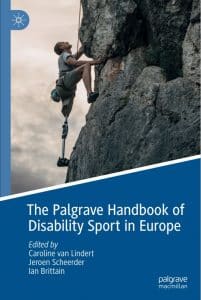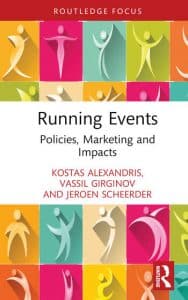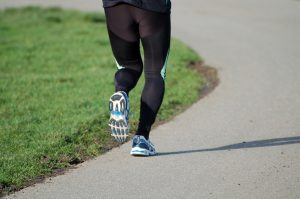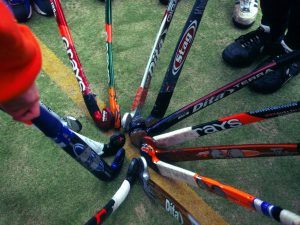The Mulier Institute
Current projects
Re/Presenting Europe
The Mulier Institute participates in the NWA-ORC funded project Re/Presenting Europe: Popular Representations of Diversity and Belonging. This project is a collaboration amongst several universities and societal and grassroots organizations in the Netherlands and Curaçao. The full project consists of work packages that address dominant and more countercultural spaces of ethnic/racial representation and belonging, in different (institutional) practices like education, healing, sport, popular culture, and urban arts. The goal of the project is a more inclusive understanding of the Netherlands and Europe.
Together with the Radboud University, the Mulier Institute coordinates the work package on diversity in sport. This work package consists of a historical and a contemporary part. The Mulier Institute is specifically working on the contemporary part with the Erasmus University, where we focus on the way in which (dominant) popular representations of sport heroes function as mechanisms of belonging and exclusion for ethnic/racially diverse youth in the Netherlands. We want to analyze how representations of sport heroes are at work amongst youth in contemporary communities. How do sports heroes impact young people’s personal and collective ethnic/racial and (trans)national identity, sense of belonging, and their future aspirations?
Community-based participatory research will be applied, together with quantitative methods, to deliver an in-depth understanding of contemporary adolescents’ heroes and their personal and intersocial meanings in terms of identification, representations (including mediated stereotypes), and feelings of belonging.
For more information contact Manou Anselma
Completed research projects between 2018 – 2024
Palgrave Handbook of Disability Sport in Europe
Planning is well underway for the Palgrave Handbook of Disability Sport in Europe. Caroline van Lindert (Msc, senior researcher, Mulier Institute, the Netherlands), Prof. dr. Jeroen Scheerder (Professor, University of Leuven, Belgium), and Dr. Ian Brittain (Assistant professor, Coventry University, United Kingdom) will serve as editors for the book. International publication is expected in 2023.
 The book aims to explore the role of national, regional, and local (sport) policies in stimulating the sports participation of people with disabilities, and how these policies contribute to the sport infrastructure for people with disabilities. The book will explain the various ways in which sport for people with disabilities is governed and organised in Europe, as well as the extent to which people with disabilities participate in sport (if data are available in the respective countries). The book will also identify various methods of data collection in sport participation research, as well as challenges in data collection in this population.
The book aims to explore the role of national, regional, and local (sport) policies in stimulating the sports participation of people with disabilities, and how these policies contribute to the sport infrastructure for people with disabilities. The book will explain the various ways in which sport for people with disabilities is governed and organised in Europe, as well as the extent to which people with disabilities participate in sport (if data are available in the respective countries). The book will also identify various methods of data collection in sport participation research, as well as challenges in data collection in this population.
The book will be written from a cross-national perspective based on a collection of country-specific chapters from all regions of Europe, with up-to-date data, in-depth descriptions and analyses within a solid theoretical framework. This format will allow for the identification of similarities and differences between European countries in their policies, infrastructure and participation levels with respect to sport for people with disabilities.
The terms ‘disability’, ‘sport’ and ‘disability sport’ will be conceptualised theoretically in order to structure the descriptions in the country-specific chapters. In addition, a comparative framework focusing on the structuring, steering and supporting elements of sport policy, will serve as a guideline for the description of the policy system on disability sport in each country. Within this theoretical framework, authors will have ample room to explain country-specific particularities concerning their disability sport (policy) systems, which will enable the editors to draw conclusions regarding the concept of disability sport in Europe as a whole. Guest authors from almost 20 European countries have agreed to contribute to the book.
It is anticipated that the depth and breadth of this volume, together with its theoretical and cross-national perspective approach, will ensure its location as a valuable resource for academic study across a range of sport and disability related programs, as well as a point of reference for researchers and policymakers working in this area. In addition, the intention is to demonstrate the importance of including ‘disability’ as a variable in (statistical) data collection on sport and sport participation, and to raise interest for further research about sport for people with disabilities across Europe.
More information about the book is available on the SpringerLink webpage.
For more information please contact: Caroline van Lindert.
Running Events – Policies, Marketing and Impacts
 This book, with a foreword by Sebastian Coe, examines the relationship between running events in local, national and international welfare policy, their marketing and management, and the social impacts. Drawing on original empirical research, the book presents a series of case studies, with each chapter containing take-home messages for sport and events managers looking to improve their practice. Developing a new theoretical perspective on running events, the book presents data from around the world. It covers different types of events and presents a typology of events. The book also examines the market for running events and runners’ socio-demographic profiles. Researchers of the Mulier Institute, Paul Hover and Linda Ooms, were co-authors of the chapter ‘Marketing running events’. For more information about the book, visit the website of Routledge.
This book, with a foreword by Sebastian Coe, examines the relationship between running events in local, national and international welfare policy, their marketing and management, and the social impacts. Drawing on original empirical research, the book presents a series of case studies, with each chapter containing take-home messages for sport and events managers looking to improve their practice. Developing a new theoretical perspective on running events, the book presents data from around the world. It covers different types of events and presents a typology of events. The book also examines the market for running events and runners’ socio-demographic profiles. Researchers of the Mulier Institute, Paul Hover and Linda Ooms, were co-authors of the chapter ‘Marketing running events’. For more information about the book, visit the website of Routledge.
For more information please contact: Paul Hover or Linda Ooms.
Safe Sport Allies: Safeguarding children from violence and abuse in local sport clubs
Too many children experience sexual, psychological, or physical violence during their participation in organized sport. Following painful disclosures and prevalence studies that can no longer be overlooked, child protection and safeguarding practices are being developed and implemented throughout European sport. However, to date, these initiatives lack solid evidence of impact. Monitoring and evaluation data barely exist, which compromises an evaluation of their effectiveness. Moreover, grassroots sport clubs seldom have designated staff to adequately implement the required procedures and practices.
One of the most devastating factors in too many stories of violence against young athletes is the phenomenon of bystanding. Even though child abuse is in most cases a repeating event, signs of abuse are still often overlooked, or bystanders decide not to act upon them. Passive bystanding contributes to the continuation of children’s suffering and protects the abuser. In order to stimulate prosocial bystanding, it is crucial to educate sports club stakeholders on when and how to intervene in case of a report, disclosure, or concern.
In this European collaborative partnership, we aim to take an evidence-based approach in setting up, implementing, and evaluating bystander interventions. A multidisciplinary group of sport administrators, survivors, safeguarding practitioners and researchers will develop an educational program for athletes, coaches and parents, and a policy roadmap for club managers. In order to test the effectiveness, a longitudinal evaluation study with an intervention and control group will be conducted in two countries.
This project will provide useful insights in developing, implementing, and evaluating an intervention program to stimulate prosocial bystander behavior and safeguard children in grassroots sport clubs. By organizing national workshops and a European webinar, the educational materials will be disseminated into the wider EU sport community. The project consists of nine different partners from seven different countries. The coordination of the project is in hands of Thomas More, Antwerp. The Mulier Institute is co-coordinator of the project and responsible for the theoretical development of the bystander intervention program.
For products and publications, see: https://www.safesportallies.eu/
For more information please contact: Johan Steenbergen.
Innovating Football Leadership through Practice and Policy (iFLIPP)
Researchers of the Mulier Instituut (Agnes Elling en Rens Cremers) contributed to several outcome products within an Erasmus+ project on enhancing gender and ethnic diversity in football leadership (iFLIPP). For more information on outcomes and products of the project (e.g. research reports and MOOCs), see https://diversityandchangeinsport.com
The Economics of Professional Road Cycling
 This revised and updated second edition of the book brings together academic research and knowledge on the economics and management of professional road cycling. Each chapter treats a particular economic aspect of road cycling. Paul Hover is the author of the chapter ‘The Economic Impact of Major Road Cycling Events’. By discussing the existing research and complementing it with the newest concepts, ideas and data on professional road cycling, this book sets an agenda for further academic research while providing insights for all stakeholders in cycling. Furthermore, the unique characteristics of the sport of cycling explored within this text inform broader management and industrial organization research, as they extend analyses of team labor, broadcast revenue generation, and sponsorship financing models. For more information about the book, visit the website of SpringerLink.
This revised and updated second edition of the book brings together academic research and knowledge on the economics and management of professional road cycling. Each chapter treats a particular economic aspect of road cycling. Paul Hover is the author of the chapter ‘The Economic Impact of Major Road Cycling Events’. By discussing the existing research and complementing it with the newest concepts, ideas and data on professional road cycling, this book sets an agenda for further academic research while providing insights for all stakeholders in cycling. Furthermore, the unique characteristics of the sport of cycling explored within this text inform broader management and industrial organization research, as they extend analyses of team labor, broadcast revenue generation, and sponsorship financing models. For more information about the book, visit the website of SpringerLink.
For more information please contact: Paul Hover.
Run for Health
 The Mulier Institute participates in the international research project Run for Health, which is funded by the Erasmus + program of the European Commission. The project aims to promote sports, exercise and social well-being through the organization of running events. The mission of the project is fourfold:
The Mulier Institute participates in the international research project Run for Health, which is funded by the Erasmus + program of the European Commission. The project aims to promote sports, exercise and social well-being through the organization of running events. The mission of the project is fourfold:
- Study of running events – from management, marketing, organizational policy and communication perspective – for in-depth insight.
- Development of practical guidelines and policy recommendations for the organization of running events.
- Stimulation of (international) communication between organizers of events and policy makers.
- Increasing awareness about the (im) possibilities to stimulate sports, exercise and social well-being through running events.
The duration of the project is 24 months. Project partners are: Aristotle University of Thessaloniki, University of Leuven, European Association of Sports Management, NHTV Breda University of Applied Sciences, Lithuanian Sports University and European Culture and Sport Organization.
For more information please contact: Paul Hover.
The 1st European research project on gender equality in sport
 The Mulier Institute, along with the Ministry of Health, Welfare and Sport and NOC*NSF, represented the Netherlands in the first European research project on gender equality in sport. Making gender equality a reality in sport is one of the main goals of the Council of Europe and the European Union. Through the “ALL IN – Towards gender balance” project, the Council of Europe ran a data collection campaign on women and men in sport in 19 European countries. The project focused on six main areas: leadership, coaching, participation, gender-based violence, media/communication, and policies and programmes addressing gender equality in sport. The Ministry/government department responsible for sport, the National Olympic Committee and the national Olympic sports federations from each country were invited to contribute to this research.
The Mulier Institute, along with the Ministry of Health, Welfare and Sport and NOC*NSF, represented the Netherlands in the first European research project on gender equality in sport. Making gender equality a reality in sport is one of the main goals of the Council of Europe and the European Union. Through the “ALL IN – Towards gender balance” project, the Council of Europe ran a data collection campaign on women and men in sport in 19 European countries. The project focused on six main areas: leadership, coaching, participation, gender-based violence, media/communication, and policies and programmes addressing gender equality in sport. The Ministry/government department responsible for sport, the National Olympic Committee and the national Olympic sports federations from each country were invited to contribute to this research.
The results of this research project are available in this report. They allow for comparisons between the situations in Dutch sports organisations and other organisations in the Netherlands and in the rest of Europe. Furthermore, the results contribute to the development of relevant sport and gender policies at an international, European and national level.
For more information please contact Agnes Elling or visit the project website.